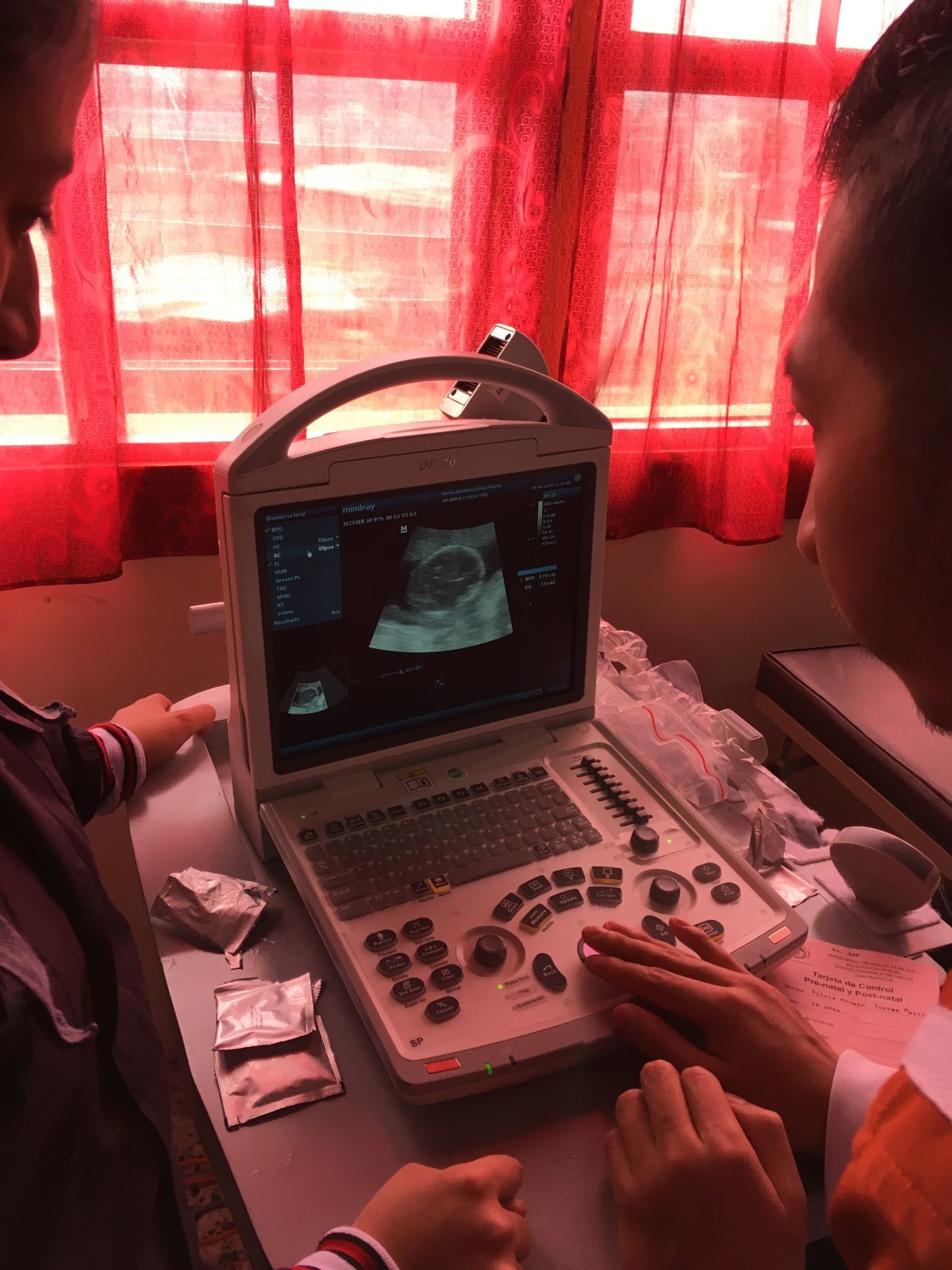Curamericas Global Provides Ultrasound Training in Rural Guatemala
Posted: November 7, 2016
In the summer of 2016, Curamericas Global provided a full week of comprehensive ultrasound training to Casa Materna staff, with the support of Dr. Alicia Martin-Hirsel.
The training curriculum included all aspects of how to use the ultrasounds, ranging from viewing the fetus to making diagnoses based on image interpretation. Acquiring these skills will enable Curamericas’ Guatemala staff to detect potential complications in delivery, such as a baby in the breached position, which can save the life of both the mother and child.
In 2001, 10% of deliveries in San Sebastian Coatán took place in a health facility. Today, due largely to the hard work of Curamericas’ staff, 76% of deliveries take place in a Casa Materna, a clinic, or a hospital. There have been no maternal deaths since the opening of the Tuzlaj Casa Materna in May 2014 and neonatal mortality has reduced by over 50%. The use of ultrasound machines will improve these indicators further by allowing for timely detection of complications in delivery and potentially saving more lives.

This opportunity is all thanks to Dr. Martin-Hirsel, a retired OB-GYN physician who conducts ultrasound trainings in low-resource settings across the world, including the Philippines and Indonesia. After learning of Curamericas Global’s work in Guatemala, she donated three portable ultrasound machines that used tablets or laptops as their screens to train the Casa Materna staff. These machines fit perfectly with the needs of the project, allowing for unreliable electricity and the ability to easily transport the ultrasounds to health posts or the homes of women in the community.
Dr. Martin-Hirsel trained staff at all three Casa Maternas for two weeks each. The staff received hands-on training by watching Dr. Martin-Hirsel demonstrate an ultrasound on the women in the clinic, after which the staff got opportunities to apply their knowledge, with Dr. Martin-Hirsel supervising and helping when required. Training sessions were held from Monday to Friday. By Friday, each staff member in the Casa Maternas was performing ultrasounds on women in the communities on their own. For a number of women, the staff was able to provide a more accurate delivery date or guidance for caesarean-section deliveries if the baby was found to be in a breach position.
Care for Forgotten Communities
In the areas where we work, rural Maya women suffer from high maternal mortality, with mortality rates twice that of non-indigenous Guatemalan women. A long history of discrimination and geographical and cultural marginalization have kept many Maya women from receiving the care or resources they need to have a healthy pregnancy and birth. In the regions of highland Guatemala, health facilities are few and far between. Even if a mother is able to make it to a clinic she still has a risk of suffering from a life-threatening complication in pregnancy, delivery, and postpartum. The Casa Maternas operate in areas where the nearest hospital is five hours away in Huehuetenango.

In the small number of clinics that can attend to deliveries, there are numerous cultural barriers. For instance, they do not provide their services in the Mayan language, which makes communication difficult for many women who do not speak Spanish. In addition, they do not allow families to be present at the delivery or permit women to wear traditional attire during delivery. Therefore, women prefer to deliver at home in the presence of traditional birth attendants known as Comadronas, who do not have the resources to address obstetric emergencies.
The Casa Maternas are easily accessible, provide services in Mayan, allow the patients to choose their attire and permit families to attend the delivery. The Casas Maternas are staffed by Auxiliary Nurses who are qualified to perform safe and clean deliveries and refer complications through a referral network using local transport to transfer patients to the nearest hospital in Huehuetenango. Furthermore, the staff at the Casa Maternas trains traditional birth attendants to detect complications in pregnancy and bring women to the Casa Materna, where they assist with the delivery.
With the work done by Curamericas Global staff and partners, there is now a capable and educated network of healthcare workers in the marginalized Guatemalan community. Where women could not get care before, during or after their pregnancy, they now can benefit from trained, equipped, and culturally sensitive health workers.
Article by Aditya Mehta, Curamericas Global Intern
Share this Article
Stay Up-To-Date With Curamericas Global
We will not spam, sell or otherwise misuse your information!